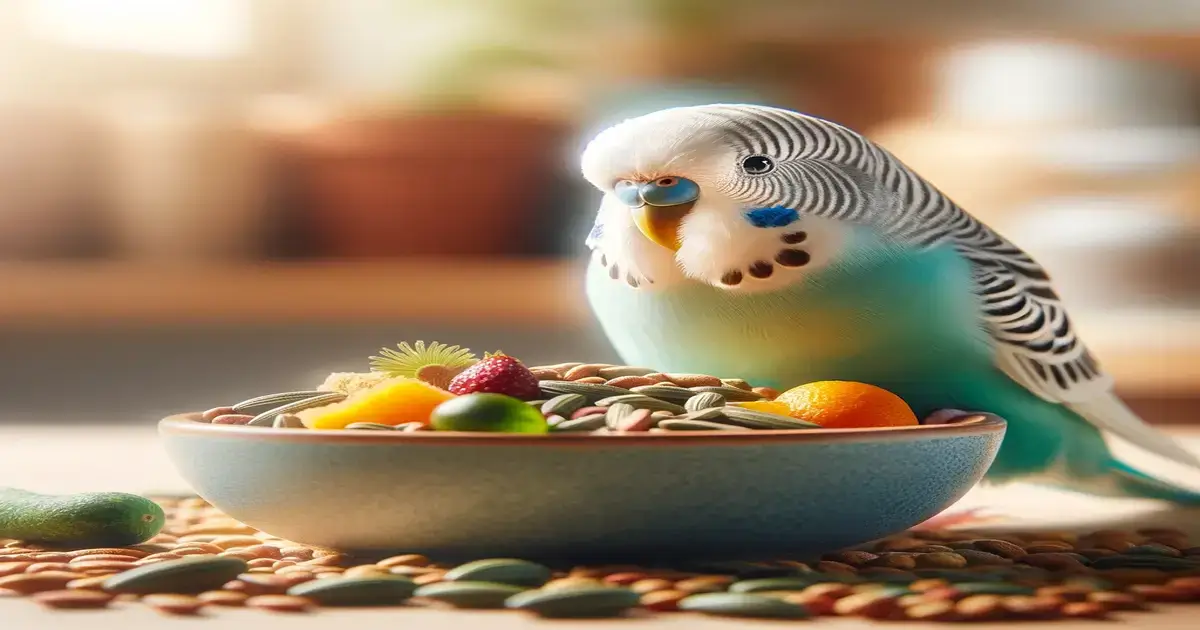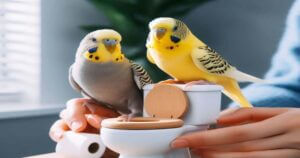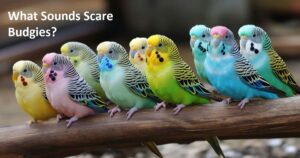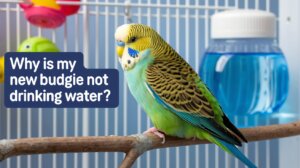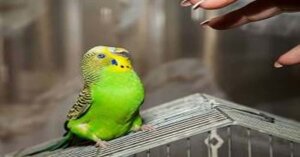Can Budgies Really Smell Food? Unveiling Avian Secrets
Ever thought about whether your pet budgie can smell food? Here’s the deal: budgies do have a sense of smell, but it’s not as strong as ours. They’re pretty good at sniffing out food when it’s not too far away.
In this post, I’m going to look at if budgies can really smell their food. I’ll talk about how these adorable birds use their noses. Stick with us to learn cool stuff about budgies and their sniffing powers.
Can Budgies Smell Food? Debunking The Myth

Budgies, those vibrant little birds, definitely have a nose for things. They can smell, but it’s not their superhero power. For example, if you put a slice of apple near them, they might catch its scent. But their nose skills aren’t as fancy as, say, a dog’s.
Now, here’s the main point: budgies mostly rely on sight and sound to find their snacks. This is pretty standard for birds. They’re like little detectives using their eyes and ears to solve the “Where’s my food?” mystery.
Let’s dive into bird noses a bit more. When sniffing out the world, budgies and their feathered friends aren’t winning any medals. Their sense of smell takes a back seat to their vision and taste.
Talking about budgies and their smell ability, it’s not their top talent. They have a basic setup for smelling – nothing too fancy.
So, what helps or hinders a budgie’s sniffing game? Proximity is key – the closer the food is, the better they smell it. And the type of food matters too. Some
Despite these smell limits, budgies are pretty smart. They often recognize and choose foods they know, using sight and taste. For instance, a budgie might not smell a seed mix from afar, but once it sees and tastes it, that mix becomes a favorite.
While budgies have a sense of smell, it’s more like a helping hand than their main food-hunting tool.
The Sense Of Taste In Budgies
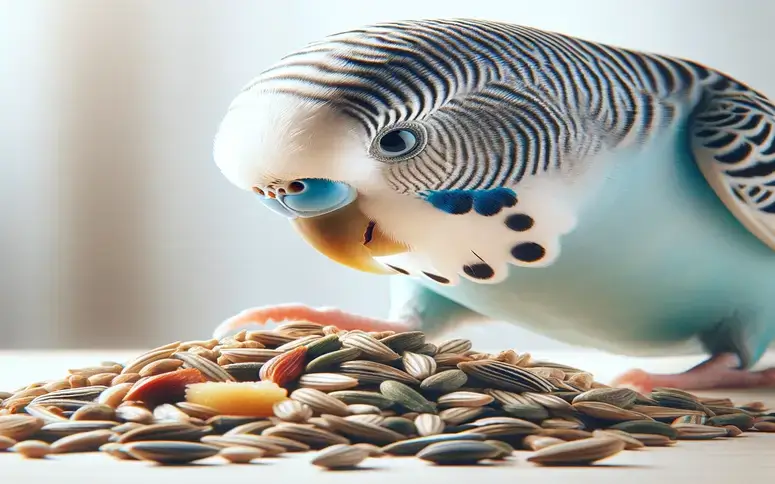
Budgies do not have a strong sense of smell but can detect food odors if they are close enough. Their sense of taste also plays a role in their food preferences.
Do Budgies Have A Sense Of Taste?
Budgies, also known as parakeets, do have a sense of taste. Their taste buds are located at the back of their throat, which allows them to assess the flavor of the food they consume.
How Does Budgies’ Sense Of Taste Work?
Budgies’ taste buds can detect basic tastes such as sweet, salty, sour, and bitter. These taste receptors help them to identify and consume food that meets their nutritional needs.
Budgies’ Preferences In Food
Budgies have distinct preferences in food. They often favor seeds, fruits, and vegetables, and their tastes may vary. Additionally, budgies may show a preference for specific flavors and textures.
The Relationship Between Smell And Taste In Budgies
While budgies do not have a strong sense of smell, they can detect food odors near the source. This ability to smell food can influence their eating habits and food preferences.
The Role Of Taste In Budgies’ Diet
The sense of taste plays a crucial role in budgies’ diet as it helps them to identify and consume a balanced and nutritious range of foods. Understanding and catering to their taste preferences is essential for their overall well-being.
Factors Affecting Budgies’ Smell Perception
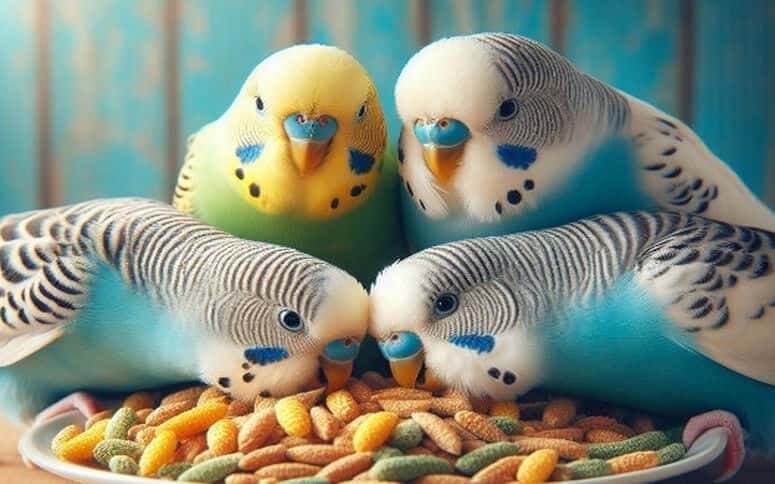
While not as acute as some other animals, Budgies’ sense of smell can be influenced by various factors. Understanding these can help in providing better care and understanding their behavior:
- Genetics and Species Variation: Different bird species, including various budgie breeds, may have varying degrees of olfactory capabilities. Genetic factors play a role in the development of their olfactory system.
- Age: Younger birds might have a more acute sense of smell compared to older ones. As budgies age, some of their senses, including smell, might diminish.
- Health and Physical Condition: A budgie’s overall health can impact its sense of smell. Respiratory infections or nasal blockages can impair their ability to detect odors.
- Environmental Conditions: The environment in which a budgie lives can influence its sense of smell. For example, exposure to strong odors, pollutants, or a lack of fresh air can affect olfactory sensitivity.
- Diet and Nutrition: A well-balanced diet is essential for maintaining overall health, including the proper functioning of sensory organs. Nutritional deficiencies can negatively impact a budgie’s sense of smell.
- Stress and Psychological Factors: Stress can affect a budgie’s overall well-being, potentially impacting its sensory perceptions, including smell. Ensuring a stress-free environment is important for their health.
- Adaptation and Experience: Budgies, like many animals, can adapt to their sensory inputs based on experience. Repeated exposure to certain scents can lead to an increased or decreased sensitivity to those specific smells.
- Molting: During the molting period, when budgies shed their feathers and grow new ones, they might experience temporary changes in their sensory perceptions, including smell.
Understanding these factors can help provide a suitable environment for budgies and can aid in interpreting their behavior and needs more effectively.
Importance of Smell For Budgies
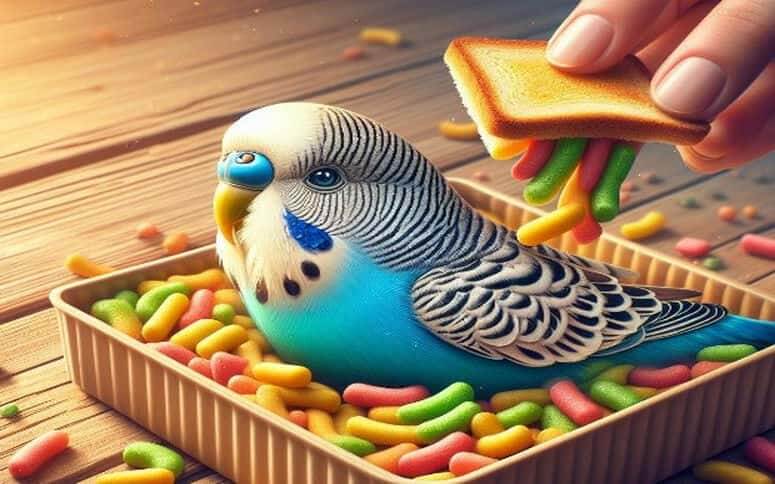
While not as prominent as in some other animals, the sense of smell in budgies still holds its own importance.
Here are key aspects of why smell matters for these charming birds:
- Food Detection: Although budgies primarily rely on sight and hearing to locate food, their sense of smell can still play a role, especially when food is nearby. They can detect certain odors, which can help them identify edible items.
- Environmental Awareness: Smell can contribute to a budgie’s understanding of its environment. While it’s not their main sensory tool, detecting different scents can aid in navigating their surroundings, especially in a new or changed habitat.
- Safety and Health: In domestic settings, a budgie’s sense of smell can be crucial for detecting harmful odors. For example, strong chemical fumes, cooking gas leaks, or smoke can harm birds. A budgie’s ability to smell these can be a line of defense against potential hazards.
- Social Interaction: In the wild, smell might play a role in social behaviors among budgies, although this is less understood than in some other animals. It could be involved in interactions like recognizing familiar birds or places.
- Comfort and Stress Levels: Familiar scents can comfort budgies, while strong, unfamiliar odors might cause stress or discomfort. This is important in ensuring that their living environment is safe and comfortable.
Ultimately, while the sense of smell in budgies is not as developed as their vision or hearing, it still contributes to their overall sensory experience and plays a role in their interaction with the world.
Frequently Asked Questions For Can Budgies Smell Food
Can Birds Smell Food From Far Away?
Despite not having a strong sense of smell, birds can detect food odors if they’re close enough. Their preference for food is less related to smell and more to visual and taste cues.
How Smell Affects A Budgie’s Appetite
A budgie’s sense of smell can influence its appetite, but it’s not the main factor. Budgies are more likely to be attracted to food by sight and taste. However, if a budgie smells something it likes, especially when the food is close, this can increase its interest in eating. Strong or unfamiliar smells might put them off their food.
Is Cooking Smell Bad For Birds?
Cooking smells can be harmful to birds and may even lead to serious illness or death. It is important to keep birds out of the kitchen while cooking and to have good ventilation to prevent the accumulation of smoke and fumes.
Verdict
Despite not having a strong sense of smell, budgies can detect food odors if they are nearby. Their preference for food is not based on smell but rather on their individual preferences. It’s important to note that parakeets are generally clean creatures and do not have a distinctive smell.
However, it is crucial to remember that cooking fumes and strong odors can harm birds and should be avoided. Overall, while budgies may not rely heavily on their sense of smell, they still have unique preferences and sensitivities when it comes to food.
Hello Dear, I'm Poli Kolymnia, owner of many birds (including budgies).
With a deep passion for these feathered companions, I'm here to share my expertise and extensive knowledge on birds care.
My articles cover essential topics like diet, housing, care, and health, providing practical tips to help you create a happy and thriving environment for your birds.

